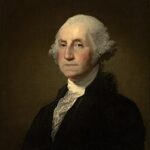The Controversial Jay’s Treaty Decision
President Washington faced mounting pressure over British violations of American sovereignty in 1794. British forces still occupied northwestern forts despite the 1783 peace treaty. Royal Navy ships regularly impressed American sailors into service. Maritime seizures devastated American commerce. Washington dispatched Chief Justice John Jay to London in April 1794. 📊 Jay’s instructions prioritized avoiding war over securing favorable terms.
The Unpopular Treaty Terms
Jay returned with a treaty that resolved some territorial disputes but ignored key American demands. Britain agreed to evacuate western forts by 1796. The treaty established joint commissions to settle boundary disputes and debt claims. However, Jay’s Treaty failed to address impressment of American sailors. ⚠️ British merchants received preferential trading rights in American ports. The agreement heavily favored Federalist commercial interests over national honor.
Washington’s Difficult Ratification Decision
The treaty sparked immediate controversy when its terms became public in 1795. Republican newspapers denounced the agreement as humiliating appeasement. Protesters burned Jay in effigy across major cities. 💰 Washington knew the treaty was unpopular but believed it prevented costly war. He submitted Jay’s Treaty to the Senate despite massive public opposition.
Impact:
Political Fallout and Partisan Division
Jay’s Treaty ratification created the deepest political crisis of Washington’s presidency. Republican opponents accused the president of betraying American independence. 🔥 Thomas Jefferson and James Madison organized fierce opposition in Congress. The treaty debate intensified partisan warfare between Federalists and Republicans. Washington’s reputation suffered severe damage among ordinary Americans. Previously unified support for the president crumbled along party lines.
Economic and Diplomatic Consequences
The treaty temporarily stabilized relations with Britain but created new problems. American merchants gained access to British West Indies trade under restricted conditions. 📉 However, preferential terms for British traders hurt American competitors. France viewed the agreement as a betrayal of their 1778 alliance. French privateers began seizing American ships in retaliation. The treaty pushed America toward an undeclared naval war with France by 1798.
Long-term Historical Impact
Jay’s Treaty established dangerous precedents for future diplomatic negotiations. The agreement demonstrated how economic interests could override national sovereignty concerns. 🌍 It accelerated the development of organized political parties in America. The treaty controversy showed the limits of presidential popularity during partisan conflicts. Washington’s support for the unpopular agreement permanently damaged his image as a unifying national leader.
